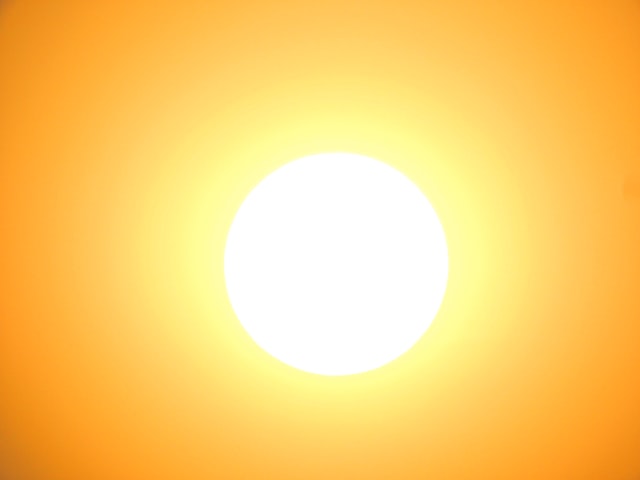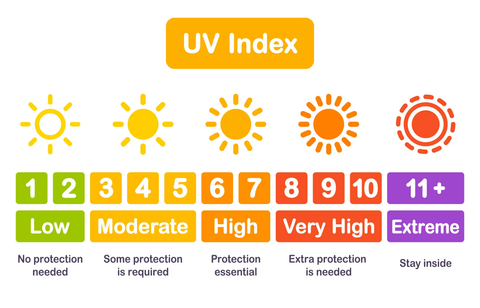When it comes to vitamin D intake, we’re chronically deficient. In fact, around 42 percent of the U.S. population suffers from vitamin D deficiency.
Lack of vitamin D isn’t always obvious. Signs and symptoms include fatigue, muscle aches, and mood changes such as depression.
Moreover, a lack of vitamin D and insomnia are connected. Low vitamin D is known to interrupt sleep regulation, worsening symptoms.
If you find yourself down in the dumps and feeling “blah,” vitamin D deficiency could be the root cause.
The two main places to obtain vitamin D? Direct sunlight or supplementation. So which is best for sleep and overall health?
Before we answer that question, we must first understand vitamin D’s role in major bodily processes.
Vitamin D: Hormone or Nutrient?
Vitamin D is involved in many bodily functions, including the absorption of calcium. As you may already know, calcium is essential for keeping bones and teeth healthy.
It also protects against infection by boosting immunity.
Moreover, vitamin D plays a role in the muscle growth and development of children.
Vitamin D can be found in certain foods like fish, but the most common sources for upping our levels are supplements or direct sunlight.

Believe it or not, vitamin D is thought of as a hormone rather than just a basic nutrient. When we expose the skin to sunlight, we expose it to ultraviolet B (UVB) radiation.
Afterward, vitamin D is synthesized in the skin when UVB rays interact with 7-dehydrocholesterol (7-DHC), a protein in the skin.
This reaction causes the protein to convert to vitamin D3, which describes the active form of vitamin D.
When we take vitamin D supplements, they are typically in the form of either D2 or D3, which we’ll break down a bit later.
The liver processes both forms. For this reason, it’s thought that the body uses supplemental and sun-derived vitamin D in the same way.
Vitamin D is also thought to play a huge role in sleep regulation.
Vitamin D and Sleep Regulation
Vitamin D deficiency is directly connected to an increased risk of sleep disorders, shortened sleep duration, and fragmented and interrupted sleep.
For these reasons, deficiency of vitamin D and insomnia are linked. While we don’t know exactly how vitamin D regulates sleep, many theories exist.
Some include the idea that vitamin D receptors on the brainstem play a role in sleep regulation.

Moreover, there is evidence that vitamin D may support the regulation of melatonin, a sleep hormone.
Therefore, many believe that increasing our vitamin D intake can improve symptoms of sleep disorders, improve sleep quality, and enhance sleep duration.
But does the way we obtain vitamin D matter? Is one method better than the other?
Sun-Derived Vs. Supplemental Vitamin D
While the body is thought to use supplemental and sunlight-derived vitamin D in the same ways, there is much debate about whether one source is better than another.
According to Yale Medicine, sunlight-derived vitamin D is no better than a vitamin D supplement you might grab from the grocery store.
However, some argue that supplements offer the benefit of reduced risk of skin cancer since sun exposure isn’t required when taking vitamin D supplements.

That said, vitamin D is “naturally” produced through sunlight exposure, suggesting that nature intended us to obtain it that way.
A small 1993 study published in the Journal of Clinical Investigation compared vitamin D levels obtained from UVB exposure versus vitamin D supplements.
Findings concluded that vitamin D obtained from sunlight remains active in the body for a longer duration than vitamin D supplements.
Subjects exposed to UVB light had increased levels of vitamin D a whopping 10 hours after exposure, peaking at 24 hours. Levels remained elevated for seven days.
By comparison, subjects who took a dose of vitamin D orally saw an immediate increase in vitamin D levels that were higher than the UVB group.

However, levels didn’t remain elevated for nearly as long. Why did sunlight-derived vitamin D lead to a longer increase in levels?
Many believe that this is due to the way the liver releases vitamin D from sunlight differently than supplemental vitamin D.
Supplemental vitamin D is carried by chylomicrons and lipoproteins, while sunlight-derived vitamin D is delivered more slowly via a specialized vitamin D binding protein.
Therefore, sunlight exposure may boost vitamin D less rapidly, but the effects last much longer.
But when it comes to concerns about sunlight exposure, the risk of skin cancer is a growing worry for many.
Just having five or more sunburns doubles your risk of skin cancer, which develops in just minutes of unprotected sun exposure if the UV index is high enough.
For this reason, many feel safer opting for a vitamin D supplement over sunlight exposure to maintain optimal levels.
There are sometimes two different forms: vitamin D2 and vitamin D3. How do you know which supplement to rely on?
Should I Rely on Vitamin D2 or D3?
If you choose to purchase vitamin D supplements to keep your levels in check without running the risk of sun exposure, you may see two different forms: D2 and D3.
D2 is often called “ergocalciferol,” while D3 is known as “cholecalciferol.” Vitamin D2 is made from plants, whereas vitamin D3 is found in animal foods.
D3 is the form naturally produced in the human body. It makes sense, then, that there is much debate about whether D3 is better than D2 when it comes to elevating vitamin D levels.

One analysis compared D2 and D3 to determine which form of vitamin D raises the blood concentrations of vitamin D for a longer period.
Results found that D3 supplements elevated vitamin D levels throughout the body for longer than D2, suggesting that D3 may be the preferred form.
That said, one last argument in favor of sunlight exposure describes the relationship between sunlight and circadian rhythm.
The Relationship Between Sunlight and Sleep
The link between low levels of vitamin D and insomnia is undeniable – and some may prefer supplementation over sunlight exposure to protect the skin.
However, the cycle of the sun has a tremendous effect on our sleep-wake cycle, also known as our circadian rhythm.
@somnifix The sun helps regulate our #circadianrhythm while boosting #vitamind levels! ☀️ Get outside in the morning! #sleepwakecycle #didyouknow #learnontiktok #vitaminddeficiency ♬ Bejeweled - Taylor Swift
Your internal clock responds to sunlight and sends signals to your body and brain to be awake and alert. Darkness signals that you should slow down, relax, and fall asleep.
A few minutes of sunlight exposure first thing in the morning is known to help us feel awake and alert in the morning, helping with the onset of sleep once night hits.
When sunlight hits our eyes, the entire brain lights up and melatonin (the sleep hormone) is suppressed while the feel-good hormone serotonin rises.
Serotonin is the precursor to melatonin, meaning that melatonin then rises later in the day to signal that we should wind down.
Essentially, sunlight isn’t just great for vitamin D exposure, it’s essential for the regulation of sleep-wake cycles.
As strange as it may seem, our breath affects sleep just as much as sunlight, too.
Mouth Tape: An Unexpected Supplement
Low vitamin D and insomnia are correlated. Mouth breathing and insomnia are, too!
Open-mouth breathing leads to snoring caused by airway tissues that fall backward and vibrate together. Whether you’re the snorer or you sleep next to one, snoring causes fragmented sleep.

Nasal breathing, on the other hand, activates the parasympathetic nervous system, helping us rest and digest, improve immunity, and come out of fight or flight.
Moreover, small nose hairs called cilia trap harmful pathogens and particles before they even have a chance to enter the body.
The nose also warms and filters the air, allowing us to absorb oxygen more efficiently.
So how do you nasal breathe at night to prevent snoring if you’re asleep? Tape your mouth shut as you climb into bed.
Don’t just grab any tape! Most contain irritating chemicals known for causing rashes.

SomniFix was created with all skin types in mind, formed from recycled materials and a hypoallergenic, gel-like adhesive that’s gentle on all skin types.
Our Mouth Strips even offer a central breathing vent that allows for emergency mouth breathing if you become congested as you sleep.
Proper airway health is just as important as your levels of vitamin D for healthy sleep-wake regulation. Supplement your breathing patterns with the help of SomniFix!





